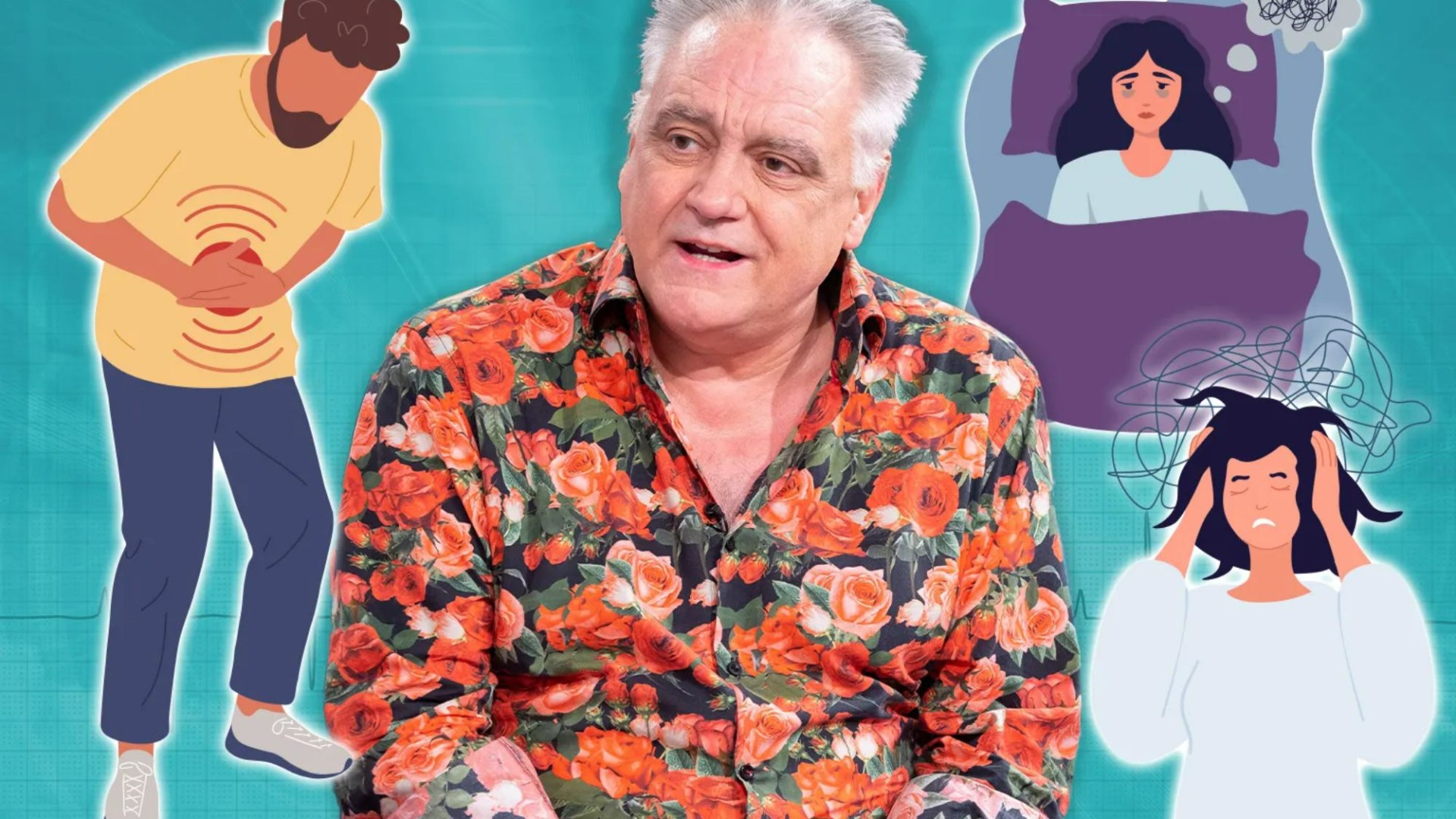BRITISH actor and comedian Tony Slattery has died at the age of 65.
His family revealed the cause of his death was a heart attack.
3

3
His partner Mark Michael Hutchinson said in a statement: “It is with great sadness we must announce actor and comedian Tony Slattery, aged 65, has passed away today, Tuesday morning, following a heart attack on Sunday evening.”
While Tony’s quick-witted improvisations on the popular Channel 4 show Whose Line Is It Anyway? will be missed, his death is a stark reminder about heart attacks – that they can strike anyone, at any time, sometimes without warning.
A heart attack occurs when blood flow to the heart muscle is blocked, cutting off oxygen and causing the heart muscle to die.
The most common cause is coronary heart disease (CHD), which is a buildup of plaque in the coronary arteries that supply blood to the heart.
Read more on heart attacks
Although the cause of Tony’s heart attack has not been disclosed.
Heart attacks are life-threatening as they can lead to death without immediate treatment.
Spotting the early signs and getting prompt treatment is crucial and can save a person’s life.
The most recognised signs of a heart attack are chest pain, feeling lightheaded or dizzy – as listed by the NHS.
But according to research there are seven more symptoms that could appear a month before a deadly attack strikes.
Writing in the journal Circulation, medics found less than a third of women report chest discomfort before the attack.
The experts at the University of Arkansas for Medical Sciences also found that 95 per cent of participants had unusual symptoms more than one month before their heart attacks and that these resolved after the event.
The most common symptoms that occurred were:
- Sleep disturbance (48 per cent)
- Shortness of breath (42 per cent)
- Indigestion (39 per cent)
- Anxiety (35.5 per cent)
- Heavy/weak arms or legs (24.9 per cent)
- Changes in thinking (23.9 per cent)
- Loss of appetite (21.9 per cent)

3
Heart attack symptoms can vary from person to person.
As well as feeling anxiety similar to a panic attack, the British Heart Foundation says as less common symptom of a heart attack, but still one to note, is lots of coughing or wheezing due to a build-up of fluid in the lungs.
The charity also warns: “It’s possible to have a heart attack without experiencing all these symptoms, and it’s important to remember everyone experiences pain differently.
“This is more likely in elderly people or people with diabetes, as the condition can cause nerve damage which affects how you feel pain.”
What to do if you think someone’s having a heart attack
CALL 999 immediately if you think someone might be having a heart attack. The faster you act, the better their chances.
The NHS lists symptoms to look out for as:
- chest pain – a feeling of pressure, heaviness, tightness or squeezing across your chest
- pain in other parts of the body – it can feel as if the pain is spreading from your chest to your arms (usually the left arm, but it can affect both arms), jaw, neck, back and tummy
- feeling lightheaded or dizzy
- sweating
- shortness of breath
- feeling sick (nausea) or being sick (vomiting)
- an overwhelming feeling of anxiety (similar to a panic attack)
- coughing or wheezing
Tony’s health through the years
Over the years Tony has opened up about various aspects of his health, including his mental struggles.
He regularly spoke about his bipolar disorder and in 2020 revealed that he went bankrupt following a battle with substance abuse and mental health issues.
Tony’s partner believed a traumatic experience in Tony’s childhood may have affected him.
Research has suggested people with bipolar are more than 2.5 times more likely to have suffered physical or mental abuse as a child.
How to reduce your risk of heart attacks and stroke
You can reduce your risk of heart attack and stroke with many of the same methods.
Heart attacks and strokes, althouh affecting different organs of the body, are both what we call cardiovascular events.
Both arise from similar underlying conditions, such as atherosclerosis —a buildup of fatty deposits in the arteries.
According to the American Heart Association, the risk factors for heart attacks and strokes are largely the same: high blood pressure, high cholesterol, smoking, obesity, physical inactivity, and diabetes.
Therefore, addressing these risk factors can simultaneously reduce the risk of both conditions.
Here are ways you can prevent the two:
Healthy diet
- More fruit and veg: The DASH, which emphasises fruit, vegetables, whole grains, and lean proteins, has been shown to reduce blood pressure and improve heart health.
- Less fats: Too much saturated and trans fats can raise cholesterol levels and increase the risk of atherosclerosis. Go for healthier fats like those found in olive oil, nuts, and avocados.
- Limit salt: High salt intake is linked to high blood pressure, a major risk factor for both heart attack and stroke. The NHS recommends no more than 6g of salt per day for adults.
- Fibre: Foods high in soluble fibre, such as oats and beans, can help lower cholesterol levels.
Exercise
Walking, running, cycling, swimming – whatever you like, do it!
Aerobic exercise can strengthen the heart and improve circulation.
The NHS advises at least 150 minutes of moderate-intensity aerobic activity or 75 minutes of vigorous-intensity activity each week.
Strength training exercises can help control weight, improve cholesterol levels, and reduce blood pressure. It is recommended twice a week by the NHS.
Manage blood pressure
Healthy diet and exercise can help keep your blood pressure in check.
But it is worth monitoring it yourself after the age of 40, at least, when the NHS invites adults for a check-up every five years.
High blood pressure often has no symptoms but significantly increases the risk of heart attack and stroke.
Quit smoking
One of the best ways to quit smoking is to use resources provided by NHS Smokefree. Support groups, medications, and other tools to help quit smoking such as vapes could be what you need to kick the habit for good – and it’s free.
Limit booze
Excessive alcohol consumption can increase blood pressure and contribute to weight gain, which can snowball and become a heart health risk.
The NHS recommends not regularly drinking more than 14 units of alcohol per week.



